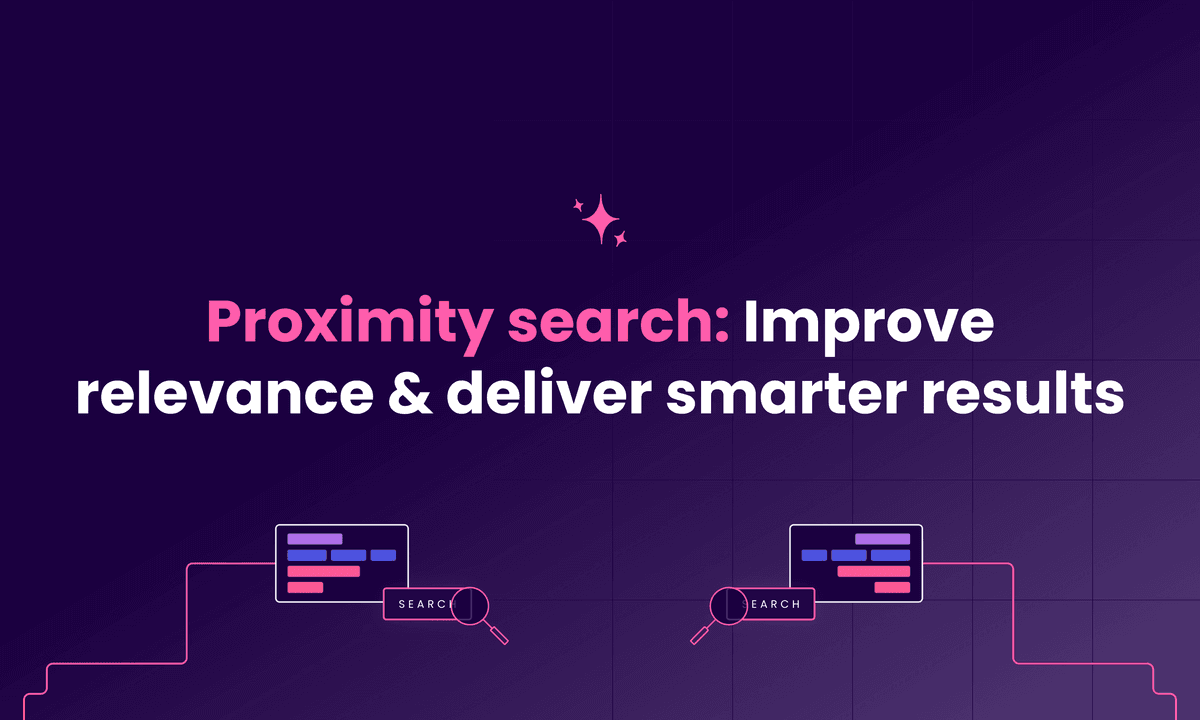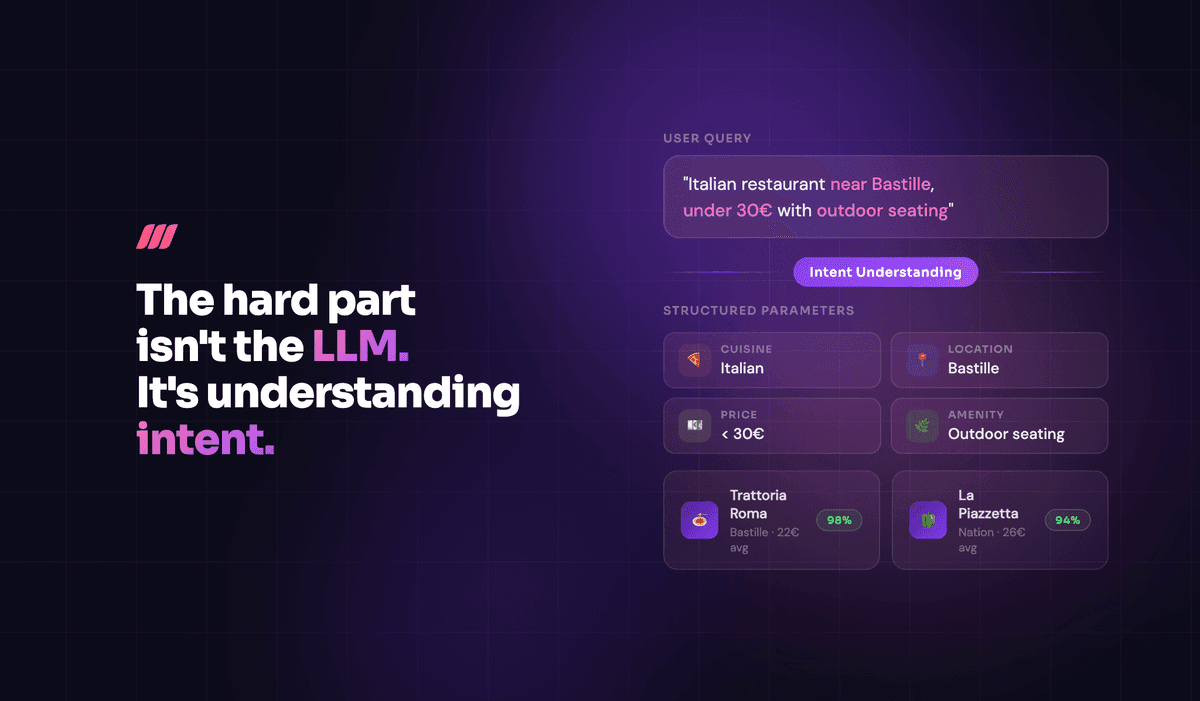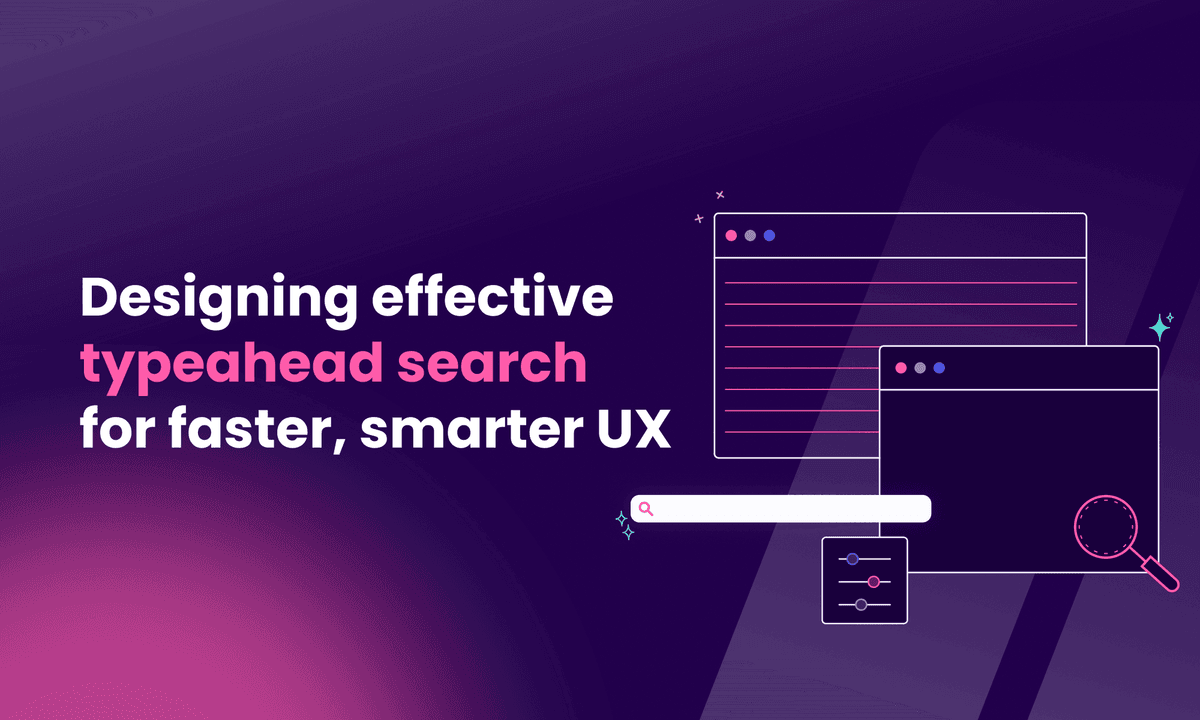Elasticsearch vs Qdrant (vs Meilisearch): Which search solution actually fits your needs in 2025?
Elasticsearch vs Qdrant comparison: Enterprise search vs AI vectors. Plus see why Meilisearch delivers fast, relevant search in <50ms without complexity.

In this article
If you're comparing Elasticsearch and Qdrant for your search needs, you're likely facing a fundamental question: do you need a comprehensive search and analytics platform that can handle everything from logs to metrics, or a specialized vector database built for the AI revolution?
It's a comparison that's becoming increasingly common as developers build the next generation of applications. Elasticsearch brings 15 years of search evolution to the table, while Qdrant embodies the new world of semantic understanding and AI-powered retrieval.
But here's what most comparisons miss: both solutions might be solving problems you don't actually have yet.
In short, here's what we recommend:
👉 Elasticsearch is the industrial-strength solution for enterprises needing comprehensive search, analytics, and observability capabilities. With its distributed architecture, extensive ecosystem, and ability to handle virtually any data type at scale, it's powerful for complex, multi-faceted deployments. The constraint? Significant operational complexity, steep learning curves, and infrastructure costs starting at $99/month for the Standard tier that can quickly escalate to thousands.
👉 Qdrant excels as a high-performance vector database designed specifically for AI applications. Its advanced filtering capabilities, flexible deployment options, and focus on semantic search make it ideal for building recommendation systems, RAG applications, and similarity search. However, it's primarily designed for vector operations, requires technical expertise for optimization, and optimization for very large datasets requires careful planning.
Both platforms are powerful but come with significant complexity and specialized use cases. What if you just need a search that works brilliantly without the operational overhead?
👉 Meilisearch delivers lightning-fast search results in under 50 milliseconds with a developer experience that gets you running in minutes, not weeks. While Elasticsearch requires extensive configuration and Qdrant focuses on vectors, Meilisearch provides typo-tolerant, relevant search out-of-the-box. With hybrid search capabilities that combine traditional full-text and AI-powered semantic search through a single API, it offers modern search capabilities with ease. The platform provides unique flexibility with both subscription-based and resource-based pricing models, starting at $30/month for the Build plan or pay-as-you-go resource pricing for predictable scaling. A 14-day free trial is available for Cloud, and there's a free open-source version for self-hosted deployments.
If you want powerful search without a PhD in distributed systems, try Meilisearch with our 14-day free trial.
Elasticsearch vs Qdrant vs Meilisearch at a glance
Here's the major difference: these three platforms approach search from completely different aspects, each optimized for distinct use cases.
- Elasticsearch is a distributed search and analytics engine that can handle virtually any data type at massive scale
- Qdrant is a specialized vector database built from the ground up for AI and semantic search applications
- Meilisearch is a developer-friendly search engine that delivers relevant results with minimal configuration
| Elasticsearch | Qdrant | Meilisearch | |
|---|---|---|---|
| Primary focus | ⭐⭐⭐⭐⭐ Full-text search & analytics | ⭐⭐⭐⭐⭐ Vector search for AI | ⭐⭐⭐⭐⭐ Fast, relevant search |
| Setup complexity | ⭐⭐ Steep learning curve | ⭐⭐⭐ Moderate complexity | ⭐⭐⭐⭐⭐ Ready in minutes |
| Performance | ⭐⭐⭐⭐ Fast at scale | ⭐⭐⭐⭐⭐ Ultra-fast vector ops | ⭐⭐⭐⭐⭐ <50ms response time |
| Resource usage | ⭐⭐ Memory intensive | ⭐⭐⭐ Optimizable | ⭐⭐⭐⭐⭐ Lightweight |
| Starting price | $99/month | Free tier (1GB RAM) | $30/month Build plan |
| Best for datasets | Billions of documents | Billions of vectors | Up to 4B documents (optimized for smaller) |
| Learning curve | ⭐⭐ Months to master | ⭐⭐⭐ Weeks to optimize | ⭐⭐⭐⭐⭐ Hours to implement |
| AI/ML capabilities | ⭐⭐⭐ Growing ML features | ⭐⭐⭐⭐⭐ Built for AI | ⭐⭐⭐⭐ Hybrid search |
| Pricing flexibility | Subscription only | Usage-based | Dual model (subscription + resource-based) |
Understanding the fundamental differences in search philosophy
The philosophical divide between these platforms reveals why feature comparisons often miss the point entirely.
Elasticsearch emerged from the belief that search should be infinitely flexible and scalable.
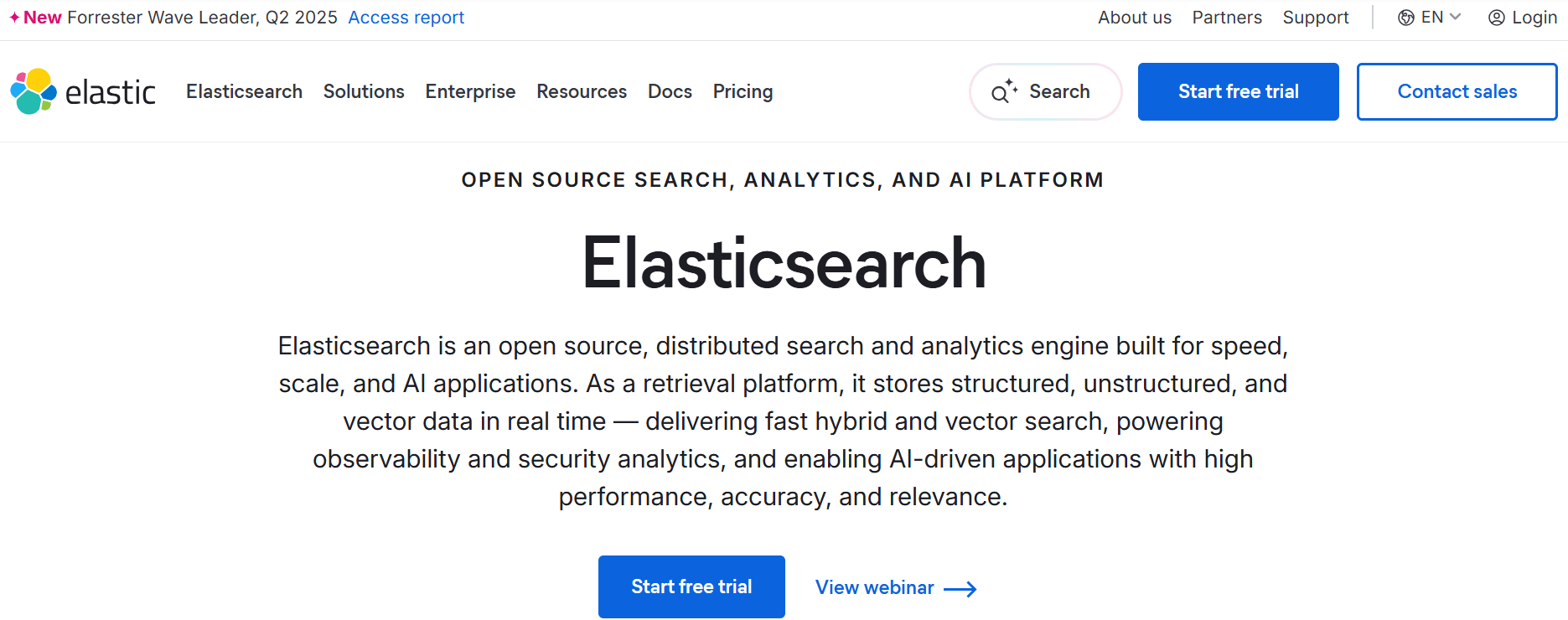
Built on Apache Lucene, it treats search as a distributed computing problem. Every piece of data can be indexed, analyzed, and aggregated in countless ways. This philosophy creates immense power but also immense complexity. You're not just implementing search; you're architecting a distributed system.
Qdrant was born from a different frustration: existing tools couldn't effectively combine vector similarity search with business logic.
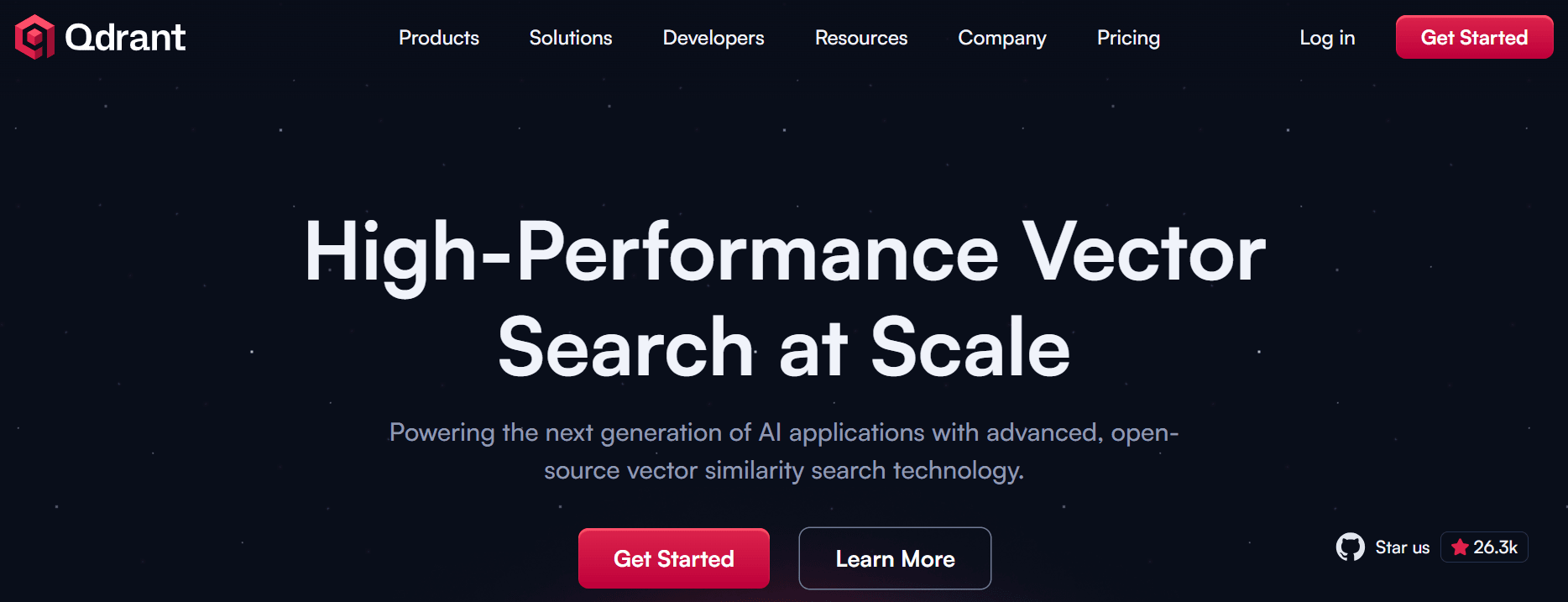
The founders needed a production-ready engine that could understand semantic meaning while still applying hard filters like price ranges or availability. This led to their focus on advanced filtering capabilities alongside vector search, where metadata filtering is as important as the vector operations themselves.
Meilisearch took a totally different approach.
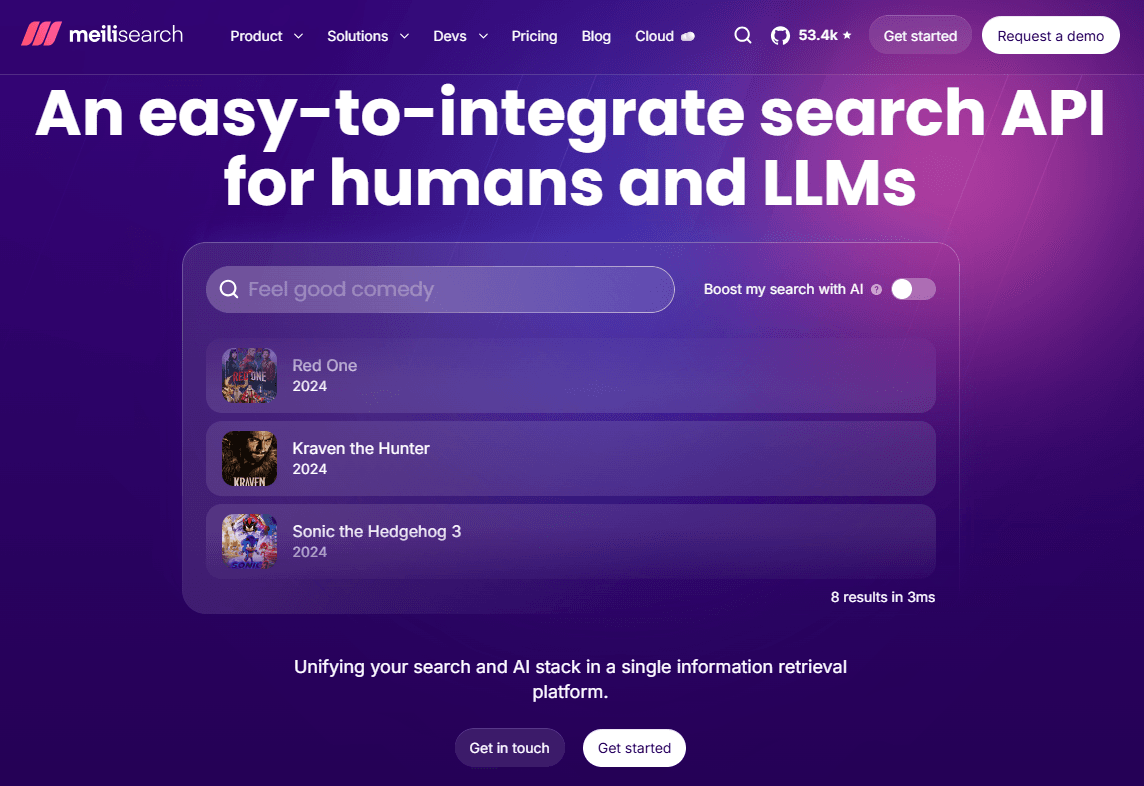
The founders, having built search engines at large e-commerce companies, saw that most developers just wanted search that worked well without months of tuning. Their philosophy centers on providing excellent relevance out-of-the-box, with every feature designed to be immediately useful rather than potentially powerful.
The practical impact? With Elasticsearch, you'll spend weeks learning about shards, replicas, and mapping types before getting good results. With Qdrant, you'll need to understand vector embeddings, distance metrics, and quantization strategies. With Meilisearch, you'll have relevant, typo-tolerant searches running in under an hour.
Elasticsearch dominates comprehensive enterprise search
When enterprises need to search, analyze, and monitor vast amounts of diverse data, Elasticsearch offers exceptional capabilities.
Its distributed architecture can scale to handle petabytes of data across thousands of nodes, making it the backbone of operations at companies processing billions of events daily.
The Elastic Stack ecosystem is where Elasticsearch truly shines. Kibana provides powerful visualization and exploration capabilities, while Logstash and Beats handle data ingestion from virtually any source.
With over 300 turn-key integrations, Elasticsearch can connect to and index data from databases, message queues, cloud services, and custom applications. This isn't just search; it's a complete observability and analytics platform.
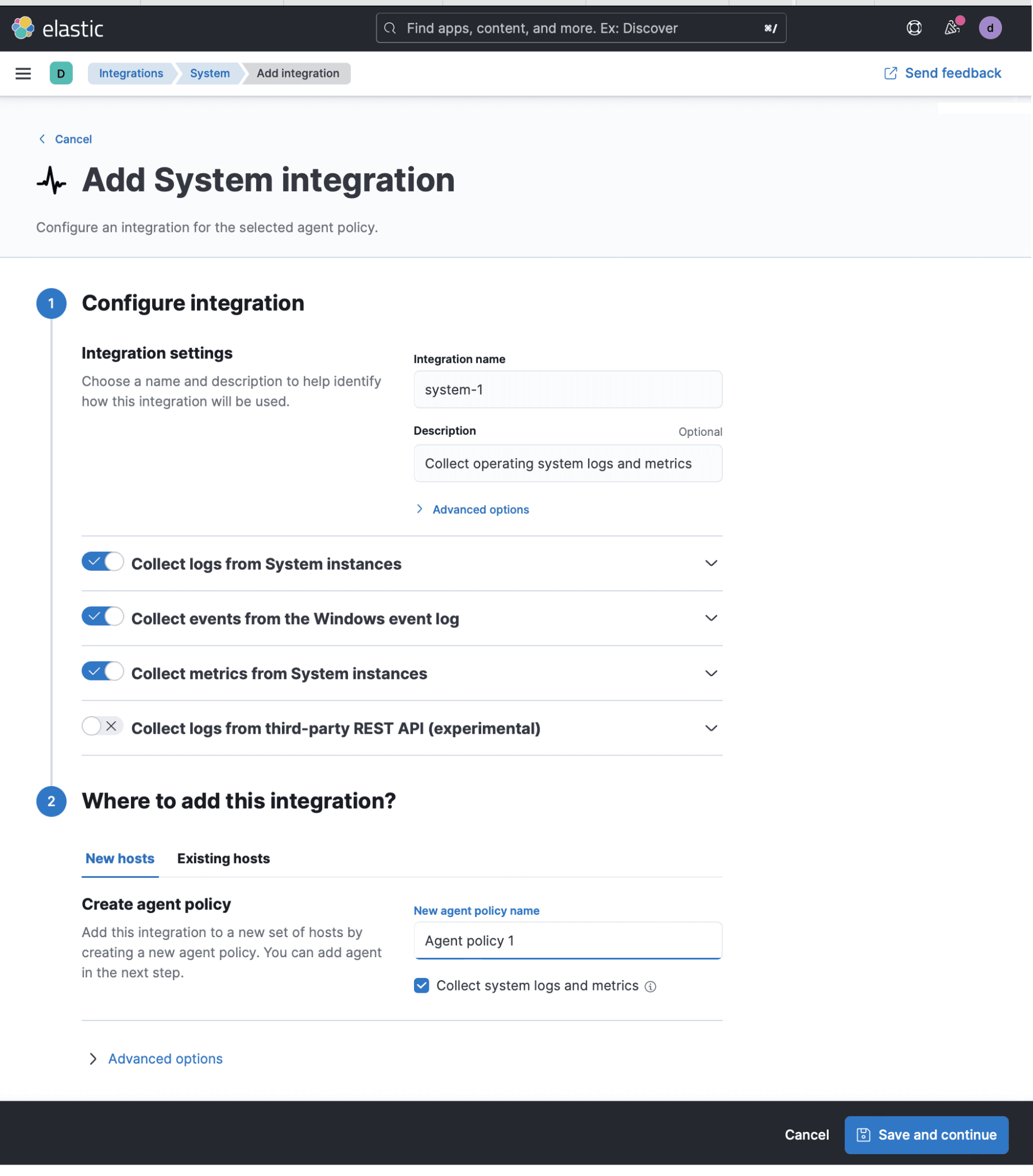 Source: Elasticsearch
Source: Elasticsearch
The platform's aggregation framework enables complex analytics that go far beyond simple search. You can build real-time dashboards showing application performance metrics, security threats, and business KPIs all from the same data. The machine learning features can automatically detect anomalies in your data streams, while the security features provide SIEM capabilities for threat hunting.

But this power comes at a significant cost. Operating an Elasticsearch cluster requires deep expertise. You'll need to understand concepts like segment merging, heap sizing, and circuit breakers. A misconfigured cluster can lead to split-brain scenarios, data loss, or complete failures. Becoming proficient requires significant time investment and hands-on experience.
The resource requirements are equally demanding. Elasticsearch can consume massive amounts of memory, with production clusters often requiring dozens of high-memory nodes. The pricing reflects this: starting at $99/month for Standard tier features, with enterprise pricing available on request, plus infrastructure costs that can easily exceed the licensing fees.
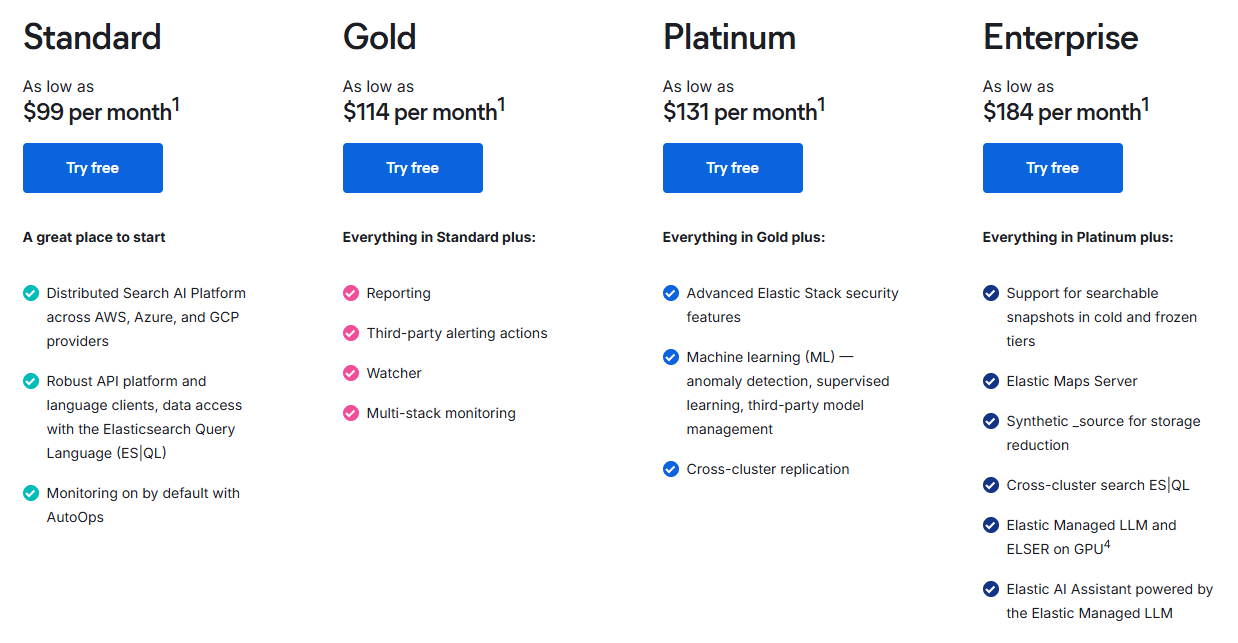
Qdrant leads in vector search for AI applications
For developers building AI-powered applications, Qdrant offers purpose-built vector search with production-ready features. While Elasticsearch has added vector capabilities, Qdrant was designed from the ground up for this use case.
The performance advantages are significant. Qdrant's HNSW algorithm, optimized in Rust, delivers excellent vector search performance. The ability to compress vectors through quantization reduces memory usage by up to 75% while maintaining accuracy. For a recommendation system or RAG application, this means serving personalized results at scale without breaking the bank.
What truly sets Qdrant apart is its filterable HNSW implementation. Unlike other vector databases that filter results after searching, Qdrant integrates filtering directly into the search process. This means you can combine semantic similarity with business rules efficiently. Search for "summer clothes" but only show items in stock, under $50, and available in the user's size, all in a single, fast query.
 Source: Qdrant
Source: Qdrant
The deployment flexibility matches modern infrastructure needs. You can run Qdrant locally for development, deploy it on-prem for data sovereignty, use the managed cloud service for simplicity, or choose hybrid deployment for the best of both worlds. The free tier with 1GB RAM makes it accessible for prototypes and small applications.
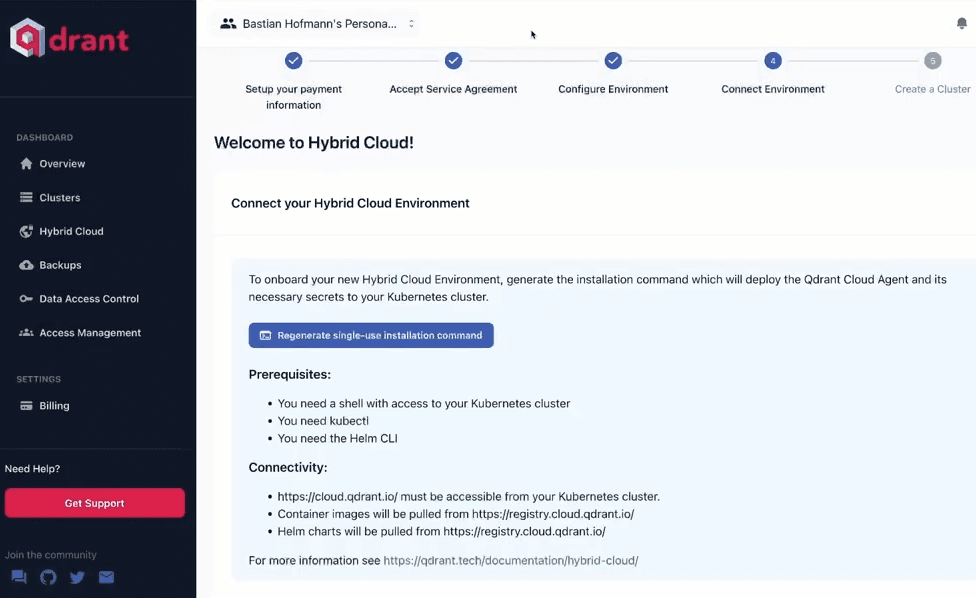 Source: Qdrant
Source: Qdrant
Yet Qdrant's specialization is also its limitation. It excels at vector operations but lacks the breadth of traditional search features. Full-text search, while possible through sparse vectors, isn't as refined as dedicated search engines. The learning curve for vector search concepts, embedding models, and optimization strategies can be steep for teams new to AI applications.
Meilisearch delivers developer-friendly search that just works
While Elasticsearch and Qdrant compete on capability depth, Meilisearch wins on a different dimension: delivering excellent search with minimal effort.
Built by developers who were frustrated with the complexity of existing solutions, it embodies the principle that good defaults matter more than infinite configurability.
The setup illustrates this philosophy perfectly. Where Elasticsearch requires understanding cluster topology and Qdrant needs embedding model configuration, Meilisearch works immediately. Install it with a single command, add your documents through the REST API, and you have typo-tolerant, relevant search. No schema definition required, no analyzer configuration needed, no mapping types to understand.
The performance is remarkable for its simplicity. Every search query returns in under 50 milliseconds, fast enough for search-as-you-type experiences. This isn't achieved through complex caching strategies or careful tuning but through fundamental architecture decisions. The use of memory-mapped files, finite state transducers, and a Rust implementation optimized for single-node performance.
Recent additions show Meilisearch isn't stuck in the past. The hybrid search feature combines traditional keyword search with AI-powered semantic search. You can leverage embeddings from OpenAI, Hugging Face, or your own models, all through the same simple API. This gives you modern AI capabilities without the complexity of managing a separate vector database.
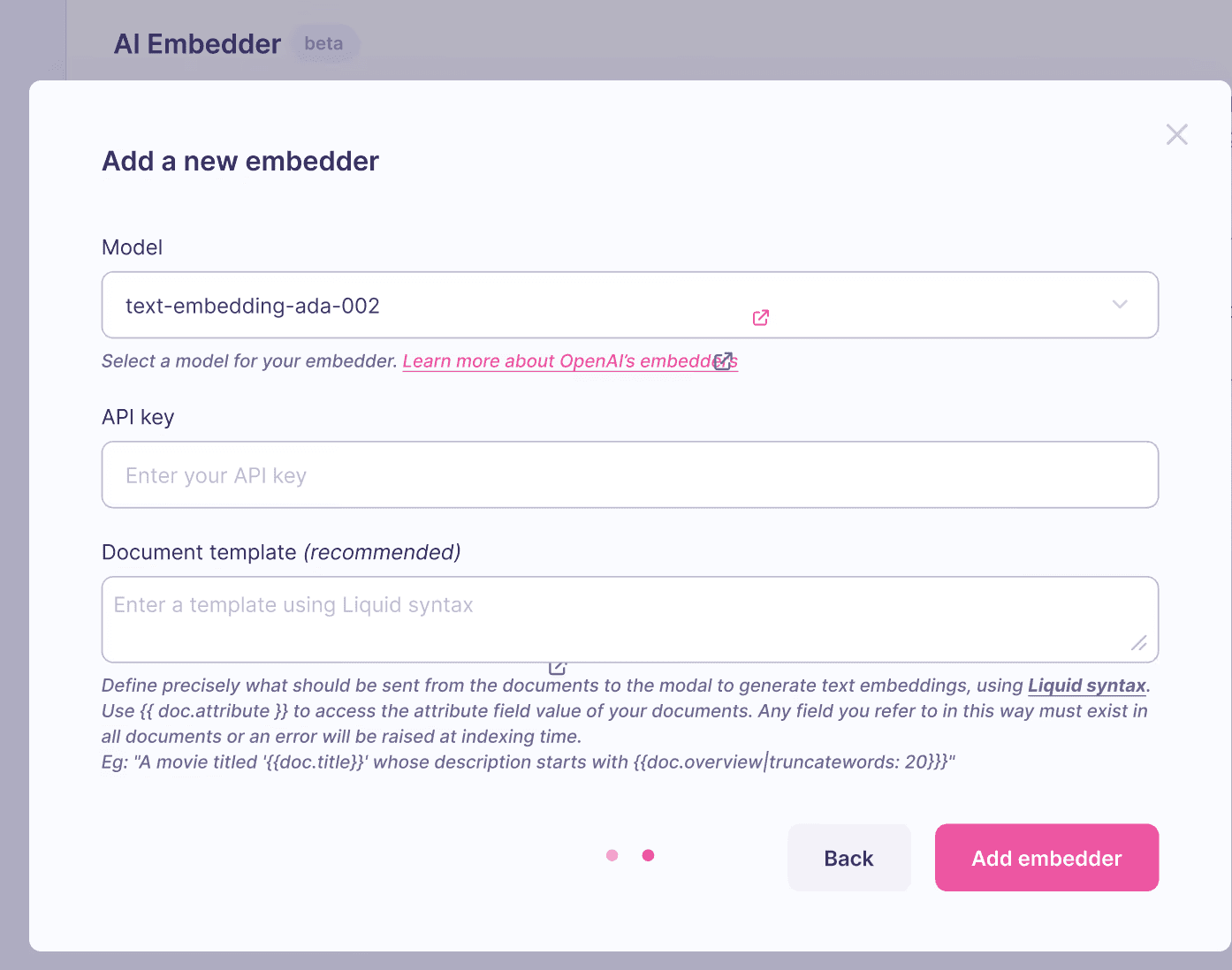
What sets Meilisearch apart in the market is its unique dual pricing model. Unlike competitors locked into single pricing approaches, Meilisearch offers both subscription-based plans (starting at $30/month for Build) and resource-based pricing. The resource-based option solves a critical pain point for growing businesses: unpredictable overage costs. Instead of surprise bills when you exceed limits, you pay only for the resources you actually use, providing the cost predictability essential for scaling operations.
The built-in relevancy is perhaps the biggest advantage. The default ranking rules (considering typos, word proximity, attribute importance) produce results that feel right without configuration. For an e-commerce site, documentation platform, or SaaS application, this means launching with good search immediately rather than spending months tuning.
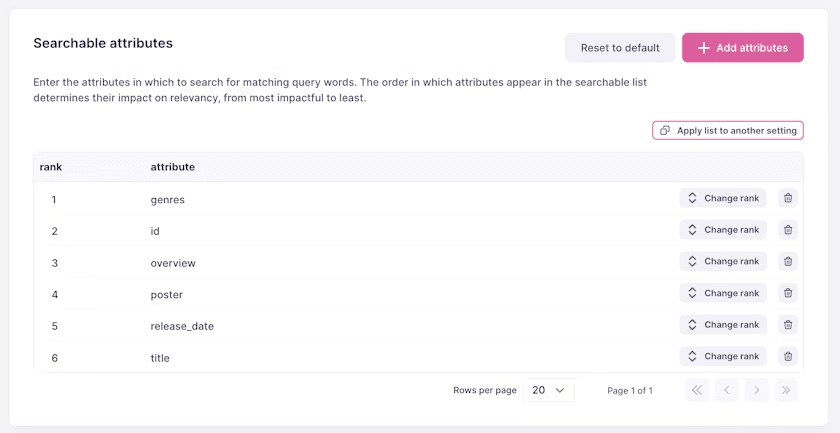 Source: Meilisearch
Source: Meilisearch
The trade-offs are clear and honest.
Meilisearch typically runs on a single node (though enterprise clustering is available), which affects its scaling approach compared to Elasticsearch's distributed architecture. While it can technically handle up to 4.3 billion documents per index, it's optimized for datasets in the millions to hundreds of millions range. The feature set, while comprehensive for most use cases, lacks some advanced capabilities like complex aggregations or specialized analytics.
The real cost of complexity nobody talks about
The cost of these platforms extends far beyond their subscription fees. Understanding the total cost of ownership shows why the "most powerful" solution isn't always the right choice.
Elasticsearch's hidden costs are substantial:
- Infrastructure: Production clusters need multiple high-memory instances, often costing thousands monthly
- Expertise: Elasticsearch engineers command premium salaries, often $150,000+ annually
- Maintenance: Constant monitoring, optimization, and upgrades require dedicated time
- Downtime: Misconfigurations can cause outages, costing revenue and reputation
Companies running large Elasticsearch deployments often report significant operational overhead, with dedicated teams managing the infrastructure and substantial monthly costs for both licensing and hardware.
Qdrant's costs center on specialization:
- Embedding generation: Using OpenAI embeddings can add significant costs at scale
- Model expertise: Understanding and optimizing vector search requires specialized knowledge
- Integration complexity: Connecting vector search to existing systems needs custom development
- Scaling challenges: Large-scale deployments require careful capacity planning
Meilisearch's simplicity translates to savings:
- Lower infrastructure needs: Efficient single-node architecture reduces hosting costs
- Faster development: Developers implement search in days, not months
- Minimal maintenance: Fewer moving parts mean less operational overhead
- Predictable scaling: Clear limits and upgrade paths without architectural changes
- Cost predictability: Resource-based pricing option eliminates surprise overages, providing budget certainty as you scale
The opportunity cost is equally important. Every week spent configuring Elasticsearch or optimizing Qdrant is a week not spent improving your product. For most applications, good-enough search delivered quickly beats perfect search delivered eventually.
Performance benchmarks reveal surprising truths
Raw performance numbers tell an incomplete story, but they reveal important patterns about each platform's strengths.
Elasticsearch shines at scale. With proper configuration and sufficient resources, it can handle thousands of queries per second across billions of documents. However, achieving this requires careful tuning. Out-of-the-box performance is often disappointing, with slow queries and high latency until properly optimized.
Qdrant delivers exceptional vector search performance. Benchmarks show it achieving higher requests per second with lower latency than competitors for similarity search. It can search through millions of vectors in milliseconds. However, initial indexing of large datasets requires optimization and planning.
Meilisearch consistently delivers sub-50ms response times with minimal configuration. While it may not match Elasticsearch's output at a great scale, its consistent performance without tuning is remarkable. For typical use cases, it often provides better real-world performance due to its optimized single-node architecture and smart defaults.
The key insight: performance sufficient for your needs delivered immediately is better than theoretical performance requiring months of optimization.
Which solution fits your actual needs?
The choice between these platforms depends less on features and more on matching the solution to your situation.
Choose Elasticsearch if:
- You need to search and analyze multiple data types (logs, metrics, documents)
- Your dataset exceeds billions of documents
- You have a dedicated operations team
- You need advanced analytics and aggregations
- You're building an observability or security platform
- Budget for infrastructure and expertise isn't a constraint
Start with Elasticsearch's 14-day free trial
Choose Qdrant if:
- You're building AI-powered applications (recommendations, RAG, similarity search)
- Semantic understanding is more important than keyword matching
- You need to combine vector search with complex filtering
- Your team understands vector embeddings and ML concepts
- You require flexible deployment options for data sovereignty
- Vector search performance is mission-critical
Explore Qdrant with their free 1GB RAM cloud tier
Choose Meilisearch if:
- You need excellent search quickly without complexity
- Your dataset is under 500 million documents
- Developer experience and simplicity matter
- You want modern features (typo tolerance, faceting, AI search) that just work
- You're building an e-commerce site, SaaS app, or documentation platform
- You prefer predictable costs and minimal operational load
- You need pricing flexibility with both subscription and resource-based options
Experience Meilisearch with our 14-day free trial or download the open-source version
The hidden truth about search infrastructure: most applications don't need the complexity of Elasticsearch or the specialization of Qdrant. They need search that's fast, relevant, and maintainable. Meilisearch delivers exactly that, letting you focus on building your product rather than managing your search infrastructure.
In a world where developer time is the scarcest resource, choosing the tool that delivers value fastest isn't just practical, it's strategic. Sometimes the best search solution isn't the most powerful or the most specialized, but the one that solves your actual problem with the least friction.
Ready to see how simple great search can be? Start your 14-day free trial of Meilisearch Cloud and get a search that just works.
Experience search that just works
Stop spending weeks configuring complex systems. Meilisearch delivers fast, relevant, typo-tolerant search in minutes with hybrid AI capabilities when you need them. Whether you're building an e-commerce site, SaaS application, or documentation platform, get production-ready search without the operational overhead.
